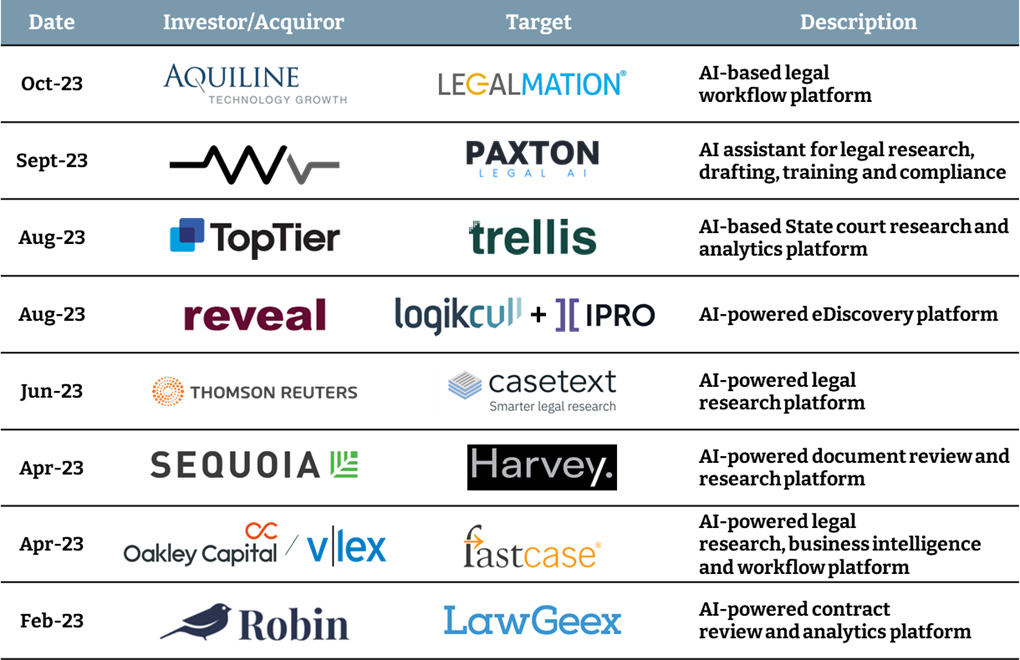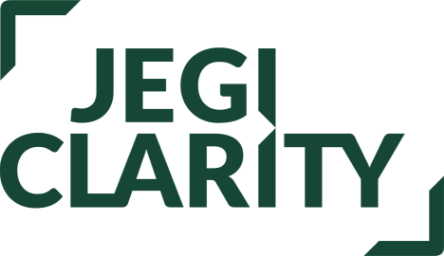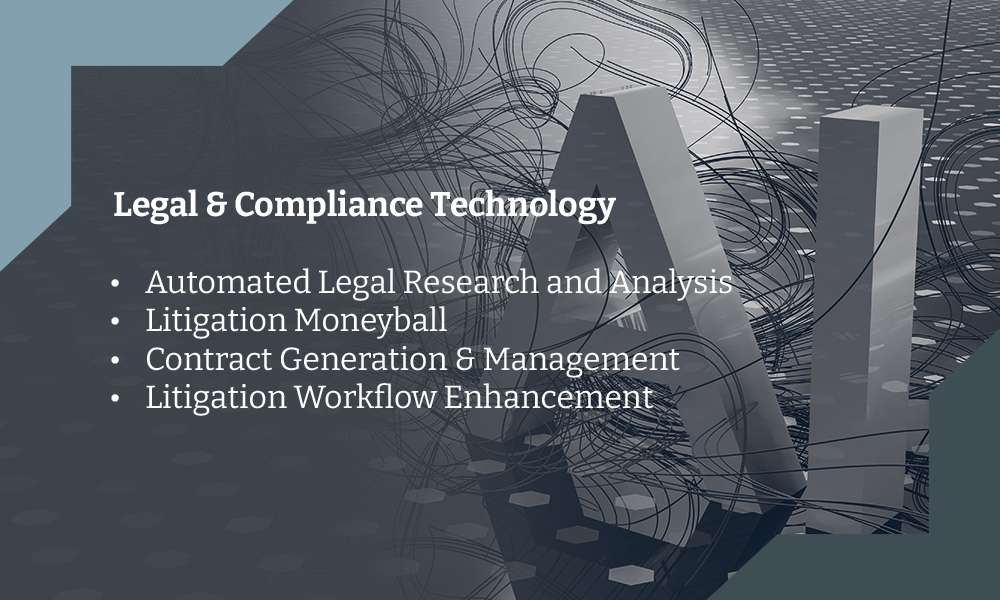Authors: Scott Mozarsky (Managing Director, US) & San Datta (Partner, EMEA)
Generative AI represents the next, and potentially most meaningful, key stage of Artificial Intelligence impacting the legal market. Generative AI ushers in a new era of efficiency involving automating routine tasks, enhancing legal research, and reshaping how lawyers construct arguments. Its potential to unlock unprecedented insights, streamline contract management, and predict legal outcomes heralds a transformative journey that promises to redefine the legal landscape for lawyers and clients alike.
History of AI in the Legal Industry
AI has already had an undeniable impact on the legal industry. There have been several pivotal stages, from eDiscovery Technology Assisted Review (TAR) and Litigation Analytics to Document Automation and Contract Analytics, that are important to understand when considering the impact that we anticipate Generative AI will have on this market.
The legal world saw its first glimpse of AI’s potential back in 2005 with eDiscovery TAR, which introduced a future where artificial intelligence could perform document review by detecting patterns in documents, effectively optimizing the tedious discovery process. TAR has been a critical driver of eDiscovery ranging up to becoming a $20B industry. Despite the subsequent innovations, across the market TAR remains the largest and most successful example of AI’s impact on the legal market.
Fast forward to 2012, and the legal market began to witness the rise of litigation analytics. Litigation analytics involved leveraging AI to detect patterns in data coming out of dockets, and case law to deliver profound insights and analytics on law firms, companies, and judges. These analytics are used for business and practice of law purposes. At first, the market was dominated by companies like Bloomberg Law, Docket Alarm and Lex Machina, but now a diverse range of players, from established companies to nimble startups, offer litigation analytics.
The mid-2010s marked a period of transformation through document automation. Before the era of Generative AI, we witnessed automated form completion based on decision trees and app-driven expert systems. Neota Logic and LegalZoom were early disruptors across both B2B and B2C, while Legalmation led the way in providing automation of pleadings in litigation. Since then, no-code/low-code platforms have become increasingly popular, allowing users to deploy software applications without needing a technical background.
The impact of AI extended to contract analytics, encompassing everything from pre-execution contract analysis to contract lifecycle management. Pattern recognition AI technology, effectively the early TAR on steroids, laid the foundation for contract analytics. Not limited to just legal use cases, contract analytics also ventured into compliance and front of the house use cases. A surge in capital raises during 2019-2021, and early 2022 has led to inevitable market consolidation.
Generative AI: Shaping the Future
The arrival of Generative AI back in 2022 heralds a new era of efficiency and effectiveness for legal professionals. Lawyers can leverage AI to handle repetitive and lower-end tasks, freeing up invaluable time and resources for higher-complexity, value-added work. In-house legal groups are increasingly turning to AI and tech-enabled solutions instead of relying on outside counsel. These advancements are now bearing fruit for early adaptors.
Internet browsers and the World Wide Web popularized the Internet for most people, and that development transformed whole industries, including law. In a similar way, Generative AI is the first exposure that most people have to powerful AI tools. Generative AI is just as disruptive. It is already changing what legal services law firms offer, how they price services, and what tasks corporate legal departments can handle in-house.
Ed Walters, Chief Strategy Officer, vLex
Automated Legal Research and Analysis
Generative AI possesses the unparalleled ability to process vast volumes of data faster and more accurately than humans. It can extract relevant information, answer questions, and build robust legal arguments.
Litigation Moneyball
Legal professionals can use Generative AI to analyze data to identify high-value clients, predict likely outcomes and behaviors, and recommend case strategies and settlement analysis. This revolutionary technology is already transforming areas such as personal injury, class action, and mass torts.
Contract Generation and Management
Generative AI streamlines the process of drafting and negotiating contracts. It provides invaluable insights that have the potential to standardize certain contract types across the market.
Litigation Workflow Enhancement
The benefits of Generative AI extend to AI-generated case law summaries, accelerated document review and summarization, deposition preparation, and regulatory compliance. It even takes on tasks like automated transcription, brief preparation, and formatting.
Conclusion: Embracing the AI-Powered Future
While we stand at the threshold of Generative AI’s influence in the legal market, its accuracy and adoption are still in the early stages. Yet, the trajectory is clear. Generative AI is poised to transform workflows, enhance efficiency, and empower lawyers to focus on the more strategic aspects of their profession. In the end, the synergy between human expertise and artificial intelligence is the way forward in the legal world.
M&A Role
Given the anticipated pace of transformation and the increasing adoption of Generative AI, we expect M&A to play a pivotal role in the legal market as firms look to gain a competitive edge. The table below includes AI-related transactions in 2023, which highlights this trend.

We look forward to continuing the conversation as the AI-story unfolds. If you have any queries or would like to have an in depth discussion on this topic or the broader market please Contact us. Our next AI article delves into the world of Events and Conferences.


